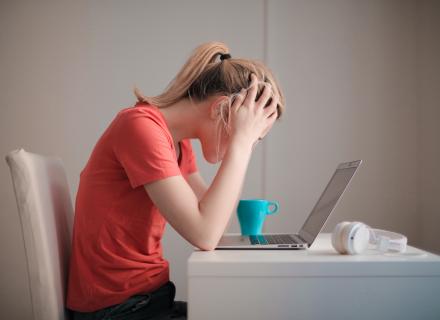Depression: An Overview
Depression is more than simply feeling unhappy or fed up for a few days. This article will outline what depression is, signs of depression and tips for helping cope with depression.
Most people go through periods of feeling down, but when you're depressed you feel persistently sad for weeks or months, rather than just a few days.
Some people think depression is trivial and not a genuine health condition. They're wrong – it is a real illness with real symptoms. Depression is not a sign of weakness or something you can "snap out of" by "pulling yourself together".
The good news is that with the right treatment and support, most people with depression can make a full recovery.
How to tell if you have depression
Depression affects people in different ways and can cause a wide variety of symptoms.
They range from lasting feelings of unhappiness and hopelessness, to losing interest in the things you used to enjoy and feeling very tearful. Many people with depression also have symptoms of anxiety.
There can be physical symptoms too, such as feeling constantly tired, sleeping badly, having no appetite or sex drive, and various aches and pains.
The symptoms of depression range from mild to severe. At its mildest, you may simply feel persistently low in spirit, while severe depression can make you feel suicidal, that life is no longer worth living.
Most people experience feelings of stress, anxiety or low mood during difficult times. A low mood may improve after a short period of time, rather than being a sign of depression.
Symptoms of depression
Psychological symptoms
The psychological symptoms of depression include:
- continuous low mood or sadness
- feeling hopeless and helpless
- having low self-esteem
- feeling tearful
- feeling guilt-ridden
- feeling irritable and intolerant of others
- having no motivation or interest in things
- finding it difficult to make decisions
- not getting any enjoyment out of life
- feeling anxious or worried
- having suicidal thoughts or thoughts of harming yourself
Physical symptoms
The physical symptoms of depression include:
- moving or speaking more slowly than usual
- changes in appetite or weight (usually decreased, but sometimes increased)
- constipation
- unexplained aches and pains
- lack of energy
- low sex drive (loss of libido)
- changes to your menstrual cycle
- disturbed sleep – for example, finding it difficult to fall asleep at night or waking up very early in the morning
Social symptoms
The social symptoms of depression include:
- avoiding contact with friends and taking part in fewer social activities
- neglecting your hobbies and interests
- having difficulties in your home, work or family life
Severities of depression
Depression can often come on gradually, so it can be difficult to notice something is wrong. Many people try to cope with their symptoms without realising they're unwell. It can sometimes take a friend or family member to suggest something is wrong.
Doctors describe depression by how serious it is:
- mild depression – has some impact on your daily life
- moderate depression – has a significant impact on your daily life
- severe depression – makes it almost impossible to get through daily life; a few people with severe depression may have psychotic symptoms
Grief and depression
It can be difficult to distinguish between grief and depression. They share many of the same characteristics, but there are important differences between them.
Grief is an entirely natural response to a loss, while depression is an illness.
People who are grieving find their feelings of sadness and loss come and go, but they're still able to enjoy things and look forward to the future.
In contrast, people who are depressed constantly feel sad. They find it difficult to enjoy anything or be positive about the future.
Other types of depression
There are different types of depression, and some conditions where depression may be one of the symptoms. These include:
- postnatal depression – sometimes new mothers, fathers or partners develop depression after they have a baby; this is known as postnatal depression and it's treated in a similar way to other types of depression, with talking therapies and antidepressant medicines
- bipolar disorder – also known as "manic depression", in bipolar disorder there are spells of both depression and excessively high mood (mania); the depression symptoms are similar to clinical depression, but the bouts of mania can include harmful behaviour, such as gambling, going on spending sprees and having unsafe sex
- seasonal affective disorder (SAD) – also known as "winter depression", SAD is a type of depression with a seasonal pattern usually related to winter
What causes depression?
Sometimes there's a trigger for depression. Life-changing events, such as bereavement, losing your job or giving birth, can bring it on.
People with a family history of depression are more likely to experience it themselves. But you can also become depressed for no obvious reason.
Treating depression
Treatment for depression can involve a combination of lifestyle changes, talking therapies and medicine. Your recommended treatment will be based on whether you have mild, moderate or severe depression.
If you have mild depression, your doctor may suggest waiting to see whether it improves on its own, while monitoring your progress. This is known as "watchful waiting". They may also suggest lifestyle measures such as exercise and self-help groups.
Talking therapies, such as cognitive behavioural therapy (CBT), are often used for mild depression that is not improving, or moderate depression. Antidepressants are also sometimes prescribed.
For moderate to severe depression, a combination of talking therapy and antidepressants is often recommended. If you have severe depression, you may be referred to a specialist mental health team for intensive specialist talking treatments and prescribed medicine.
Managing low mood
Feeling low is a part of all of our lives at some stage. Everyone feels upset, sad or disheartened from time to time, but for some of us it can be a real problem. The good news is that there are things you can do to improve your mood. Follow the Link for more advice on managing low mood.
Further support for managing low mood can be found by referring your self to the enhanced health and wellbeing team or steps 2 wellbeing
When to see a doctor
It's important to seek help from a GP if you think you may be depressed.
Many people wait a long time before seeking help for depression, but it's best not to delay. The sooner you see a doctor, the sooner you can be on the way to recovery.
For urgent care please contact your GP or dial 999 for immediate attention if required.
Source: NHS England





